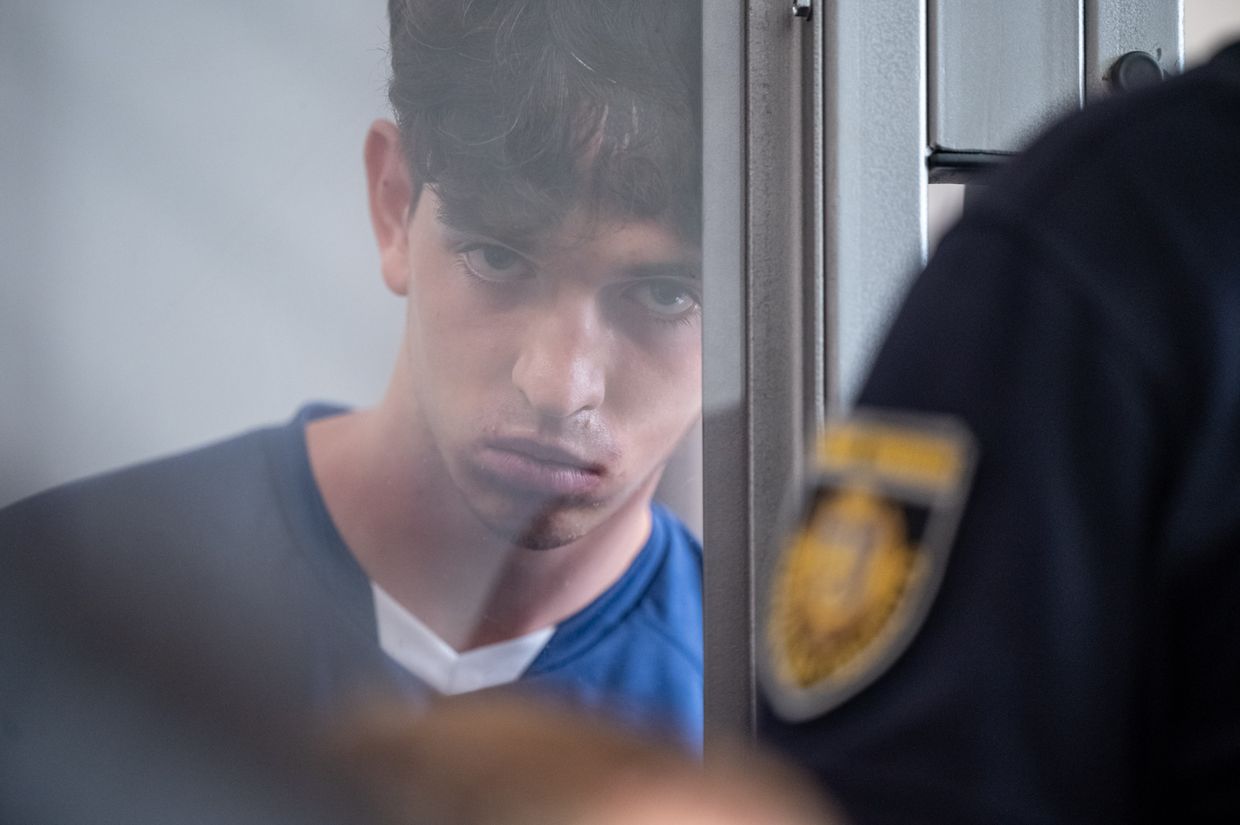Ex-lawmaker Iryna Farion assassination – everything we know about 18-year-old suspect

Support independent journalism in Ukraine. Join us in this fight.
Become a member Support us just onceAfter a "challenging" manhunt, a teenager has been detained over the assassination of former Ukrainian lawmaker and linguist, Iryna Farion, Ukrainian authorities announced on July 25. Since then, details have begun to emerge about the potential motive of the suspected killer, including possible links to Russian neo-Nazi groups. Here's everything we know so far:
The crime
On the evening of July 19, a man opened fire on Farion on the street outside her home in the city of Lviv, in western Ukraine.
She underwent emergency surgery but was pronounced dead later that night. Farion was a highly-controversial figure in Ukraine, known for her incendiary statements on the use of the Russian language. She was a linguistics professor who briefly served in the parliament for the nationalist Svoboda party.
She caused particular outrage late last year when she said that she couldn't call Ukrainian soldiers Ukrainians if they speak Russian. After receiving a message of support from Maksym Hlebov, a pro-Ukrainian student living in occupied Crimea, she was heavily criticized for publishing the email on her social media, and revealing his personal details. Ukraine's Security Service (SBU) said in November 2023 that Farion was under criminal investigation both for her statements about Russian-speaking soldiers and for leaking the message from Hlebov.
The suspect
On July 25, 18-year-old Viacheslav Zinchenko was arrested in Dnipro, nearly 1,000 kilometers east from Lviv.
Ukrainian media identified that his father is serving on the front line. When contacted, he only said that his son is a patriot of Ukraine. Ukrainian news outlet Slidstvo.Info found that Zinchenko plays soccer for a local youth team.
His alleged social media account was reportedly subscribed to far-right accounts. He graduated high school last year and has reportedly entered a local university as a remote student to study law. The suspect's mother told journalists that her son knew Lviv well because he has "spent a long time there last year," taking a course in a local school of drone operators.
She said that he wanted to join the military as volunteer.
Manhunt and identification
Announcing the news in a post on Telegram, President Volodymyr Zelensky, citing Interior Minister Ihor Klymenko, said the manhunt had been "challenging." "Over the past few days, hundreds of specialists from the National Police of Ukraine, the Security Service of Ukraine, and other services worked to solve the murder," Zelensky said. Klymenko said that the search operation lasted 139 hours.
Law enforcement agencies inspected about 100 hectares of forest and eventually managed to track down the suspected shooter in Dnipro. "With his photo, it was a matter of time: smart surveillance cameras 'caught' him everywhere," Klymenko said. Ukrainian law enforcement leaked Zinchenko's details to the media before he was officially identified as a suspect in the assassination.
According to experts consulted by Detector Media, a Ukrainian media watchdog, such actions were both a breach of law and ethics. On July 26, a court in Lviv put Zinchenko in custody for 60 days. The investigation continues.
Alleged motive
In a video released by the National Police, Zinchenko doesn't confirm or deny his involvement in the murder.
"We will see. Time will show," he replies when asked whether he killed Farion. Speaking to Radio Free Europe/Radio Liberty on July 26, Andrii Niebytov, Deputy Head of the National Police of Ukraine, said that Zinchenko believes he "did the right thing."
"There's a person, a totally pro-Ukrainian person. I have personally spoken with him. He respects Ukraine.
His father is fighting in a brigade," he said. "He loves Ukraine and thinks he did the right thing. He thinks Ukrainian society should not be divided.
He had his own motives." Niebytov also suggested Zinchenko wasn't working alone when he planned the assassination. "I'll put it this way: this person hasn't come up with this idea by himself," he said.
"You know that he was a member of certain groups that unfortunately weren't pro-Ukrainian." On July 26, Ukrainian law enforcement agencies said Zinchenko could be involved in the Russian neo-Nazi movement. Zinchenko's phone contained a digital book titled "Secret Instructions of the Central Intelligence Agency and the Committee for State Security on Fact-Gathering, Conspiracy and Disinformation," they said.
The suspect's search history on his devices also included the names of other politicians and deputies and the schedule of the regional council meeting, potentially indicating he planned more attacks on officials. The pro-Kremlin Telegram channel Readovka claimed that the NS/WP (National-Socialism/White Power) group had taken responsibility for Farion's murder. Readovka also described the NS/WP as "neo-Nazi."
The Ukrainian police were examining the claims published on Russian social media, a police spokesperson said.
Zinchenko also prepared a farewell letter in which he asked to explain to his father that he "hid everything from him for his safety, not because he did not trust him."
??